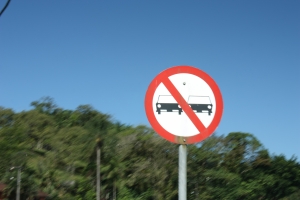Part 3 – Is the Item Taxable?
This article is a follow up to a previous article I wrote in dealing with tobacco tax audits. In addition to looking at the applicable statute of limitations and whether excise tax and shipping charges are included in the tax base any experienced Florida tobacco and beverage tax attorney should closely examine the taxable base to which the tax is being applied. As stated in other parts of the article, Chapter 210 Florida Statutes applies a surcharge and an excise tax on tobacco products. Part I of Chapter 210, F.S. works the same way for the tax on cigarettes. It is also noteworthy that the Florida beverage tax is applied in the same manner. It is simple math; the tax rate times the tax base equals the tax due. Being that the tax rate cannot be changed, a careful examination of the tax base must be undertaken to ensure the smallest amount of tax liability for the Florida taxpayer.
Although, the DBPR takes the position that many items are subject to the beverage and tobacco tax. However, as experienced tobacco and beverage attorneys we have learned that the almighty Florida DBPR often includes items that are not included in the taxing statute. Remember, the item has to be within the four corners of taxing statute to be taxable, and any ambiguities are to be resolved against the agency and in favor of the taxpayer. With that in mind, section 210.01, F.S., defines a cigarette to mean:
any roll for smoking, except one of which the tobacco is fully naturally fermented, without regard to the kind of tobacco or other substances used in the inner roll or the nature or composition of the material in which the roll is wrapped, which is made wholly or in part of tobacco irrespective of size or shape and whether such tobacco is flavored, adulterated or mixed with any other ingredient.
Similarly, section 201.25, F.S., defines a tobacco product as
loose tobacco suitable for smoking; snuff; snuff flour; cavendish; plug and twist tobacco; fine cuts and other chewing tobaccos; shorts; refuse scraps; clippings, cuttings, and sweepings of tobacco, and other kinds and forms of tobacco prepared in such manner as to be suitable for chewing; but “tobacco products” does not include cigarettes, as defined by s. 210.01(1), or cigars.
Is the item in which the DBPR is trying to assess you or your client included in those definitions? We have found that the DBPR often assesses items that are arguably outside of Chapter 210 and the 560’s (for beverage tax). Are items like cigar wrappers subject to the tax? What items have you encountered that may not be a tobacco product for chapter 210, F.S., purposes?
Continue reading
 Multi-State Tax Law Blog
Multi-State Tax Law Blog


 The Empire State has grown tired of chasing tax delinquents and Governor Andrew M. Cuomo is leading the charge. Put into law as part of the executive budget, New York believes this initiative will increase collection by about $26 million this year. The Governor was quoted as saying:
The Empire State has grown tired of chasing tax delinquents and Governor Andrew M. Cuomo is leading the charge. Put into law as part of the executive budget, New York believes this initiative will increase collection by about $26 million this year. The Governor was quoted as saying: Cloud computing is a service that allows users or members of a business to access software from a remote server. It allows businesses to access the same integrated software without the expensive hardware costs because the software is internet based rather than physically based in an office.
Cloud computing is a service that allows users or members of a business to access software from a remote server. It allows businesses to access the same integrated software without the expensive hardware costs because the software is internet based rather than physically based in an office.